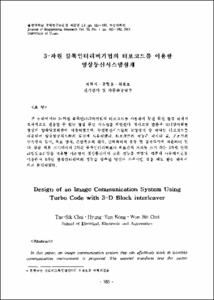환경규제의 정치ㆍ경제적 성격
- Alternative Title
- The Political Economy of Environmental Protection Regulation
- Abstract
- 환경규제는 다른 정부규제에 비해서 과학적 연구와 분석이 많이 행해지고 있는 것처럼 보이고, 이에 따라 환경규제는 과학적 근거를 바탕으로 비교적 합리적으로 결정되는 것으로 생각하기 쉽다. 그러나 환경규제는 과학적 경제적 논리 뿐만아니라 규제와 관련된 이해관계자들의 상호작용과 같은 정치적 과정과 절차에 의해서 결정된다. 이 논문에서는 환경규제가 이와 같은 성격을 갖게 되는 이유를 살펴 보고자 하였다. 즉 환경규제가 정치경제적 성격을 갖게 되는 이유를 여러 측면에서 살펴봄으로써 환경규제가 반드시 경제적 과학적 논리로만 결정되는 것이 아니라는 것을 밝혀 보려고 하였다. 이를 위해 우선 환경보호를 위한 정부개입의 근거 또는 정당성을 설명하였으며, 환경규제가 정치경제적 성격을 갖게 되는 이유를 환경보호와 경제발전 간의 이념적 대립문제, 환경규제와 관련된 비용과 편익배분의 형평성 문제, 환경규제에 관한 정확한 과학적 근거 제시의 문제, 환경규제와 관련된 제집단 간의 관계문제 등으로 구분하여 설명하였다. 이와같이 이 논문은 환경규제의 정치경제적 성격을 명확히 함으로써 연구의 초점을 환경규제의 '결정과정'에 둘 것을 제안하고 있다.
Ambiguous scientific evidence and strong disagreement as to the economic benefits of regulation are not unusual in the fields of environmental regulation. In fact, in most cases, scientific evidence is a necessary but seldom a sufficient factor in making regulatory policy.
Because of the ambiguous relationship between good science and the regulatory process, and because of the limited resources for scientific technological studies and delays in bureaucratic response, any regulatory agency will have a difficult time considering trade offs between benefits and harms. No bureau can function unless it can to some extent control how highly technical decisions create winners and losers among its clients. I call this character of environmental protection regulation policy as 'political economy', and in this study, the writer made an effort to suggest the reasons why the environmental protection regulations have this character.
Ambiguous scientific evidence and strong disagreement as to the economic benefits of regulation are not unusual in the fields of environmental regulation. In fact, in most cases, scientific evidence is a necessary but seldom a sufficient factor in making regulatory policy.
Because of the ambiguous relationship between good science and the regulatory process, and because of the limited resources for scientific technological studies and delays in bureaucratic response, any regulatory agency will have a difficult time considering trade offs between benefits and harms. No bureau can function unless it can to some extent control how highly technical decisions create winners and losers among its clients. I call this character of environmental protection regulation policy as 'political economy', and in this study, the writer made an effort to suggest the reasons why the environmental protection regulations have this character.
- Issued Date
- 1991
- Type
- Research Laboratory
- Alternative Author(s)
- Jung, Joon-Keum
- Publisher
- 사회과학논집
- Language
- kor
- Rights
- 울산대학교 저작물은 저작권에 의해 보호받습니다.
- Citation Volume
- 1
- Citation Number
- 2
- Citation Start Page
- 1
- Citation End Page
- 18
- Appears in Collections:
- Research Laboratory > Journal of social science
- 파일 목록
-
-
Download
 000002023778.pdf
기타 데이터 / 546.17 kB / Adobe PDF
000002023778.pdf
기타 데이터 / 546.17 kB / Adobe PDF
-
Items in Repository are protected by copyright, with all rights reserved, unless otherwise indicated.